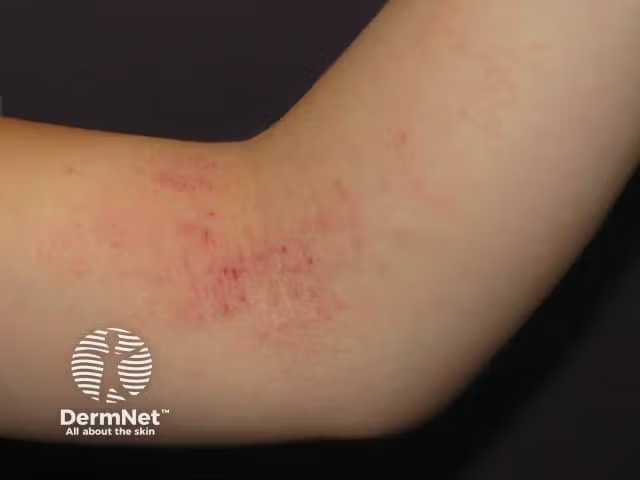- Case-Based Roundtable
- General Dermatology
- Eczema
- Chronic Hand Eczema
- Alopecia
- Aesthetics
- Vitiligo
- COVID-19
- Actinic Keratosis
- Precision Medicine and Biologics
- Rare Disease
- Wound Care
- Rosacea
- Psoriasis
- Psoriatic Arthritis
- Atopic Dermatitis
- Melasma
- NP and PA
- Skin Cancer
- Hidradenitis Suppurativa
- Drug Watch
- Pigmentary Disorders
- Acne
- Pediatric Dermatology
- Practice Management
- Prurigo Nodularis
- Buy-and-Bill
Opinion
Video
Utilizing Multidisciplinary Solutions for Itch
Author(s):
Sonya Kenkare, MD, explains her approach to itch and the support system of multiple specialties to help a pediatric patient with atopic dermatitis.
This news content has been independently developed and is not endorsed by the American Academy of Dermatology.
In this Dermatology Times Expert Perspectives series, 5 experts delve into the multifaceted aspects of pediatric atopic dermatitis care (AD) including demographic variances to long-term safety and efficacy, comparative analyses, key takeaways from recent research, personalized approaches, and future research directions. Discover clinical insights into the role of ruxolitinib (Opzelura) in addressing critical challenges and enhancing patient outcomes.
In this episode, Sonya Kenkare, MD, dermatologist at Illinois Dermatology Institute in Hinsdale, Illinois, explains her approach to itch and the support system of multiple specialties to help a pediatric patient with AD.
Dermatology Times Interview With Sonya Kenkare, MD
Dermatology Times: Itch is a significant concern for both pediatric patients and their caregivers. Can you delve into how ruxolitinib addresses itch in comparison to the vehicle, and are there specific mechanisms or pathways targeted that contribute to improved itch relief in pediatric atopic dermatitis?
Kenkare: Topical ruxolitinib is a topical JAK1/JAK2 inhibitor, and it is able to reduce edge through that pathway. And it was shown in studies compared to the vehicle to have a statistically significant higher reduction of pruritis within 12 hours. After 2 days, it was able to reduce the itch score by 4 points, which was the endpoint that the investigators were looking for. And the vehicle was never able to achieve that level of improvement.
I think that one of the most difficult parts of managing AD in the kiddos isn't even the application of the moisturizers which the parents are so diligent about. It's how to get that itch under control because when they keep scratching, that inflammation does not go away. And that's the beauty of topical ruxolitinib. By helping to get that itch under control without sedating a child with an oral antihistamine, we're able to see progress occur more quickly. I really try to address the entire impact of this disease on the quality of life to help a patient get even more keyed in to a treatment regimen because it helps improve compliance and it helps improve motivation. When someone realizes that all of these things that may be impacting their life, their quality of sleep, their ability to focus, their self consciousness about their appearance and behaviors, when they realize that all of those things can improve by being compliant with a treatment regimen, their motivation goes through the roof, and medications like topical steroids, topical non-steroidal anti-inflammatories, topical ruxolitinib; those help a lot.
For my patients, with pediatric AD especially, I do see a high rate of asthma and allergies come along with that. So I do often co-manage with pediatric pulmonologist or pediatric allergist to try to make sure that my patient's overall health is being addressed from all of the different angles. Occasionally, behavioral health therapists can be helpful because the itch can be so pervasive. It's truly beyond frustrating for a child and having that emotional support can be extremely helpful.
Transcript edited for clarity






